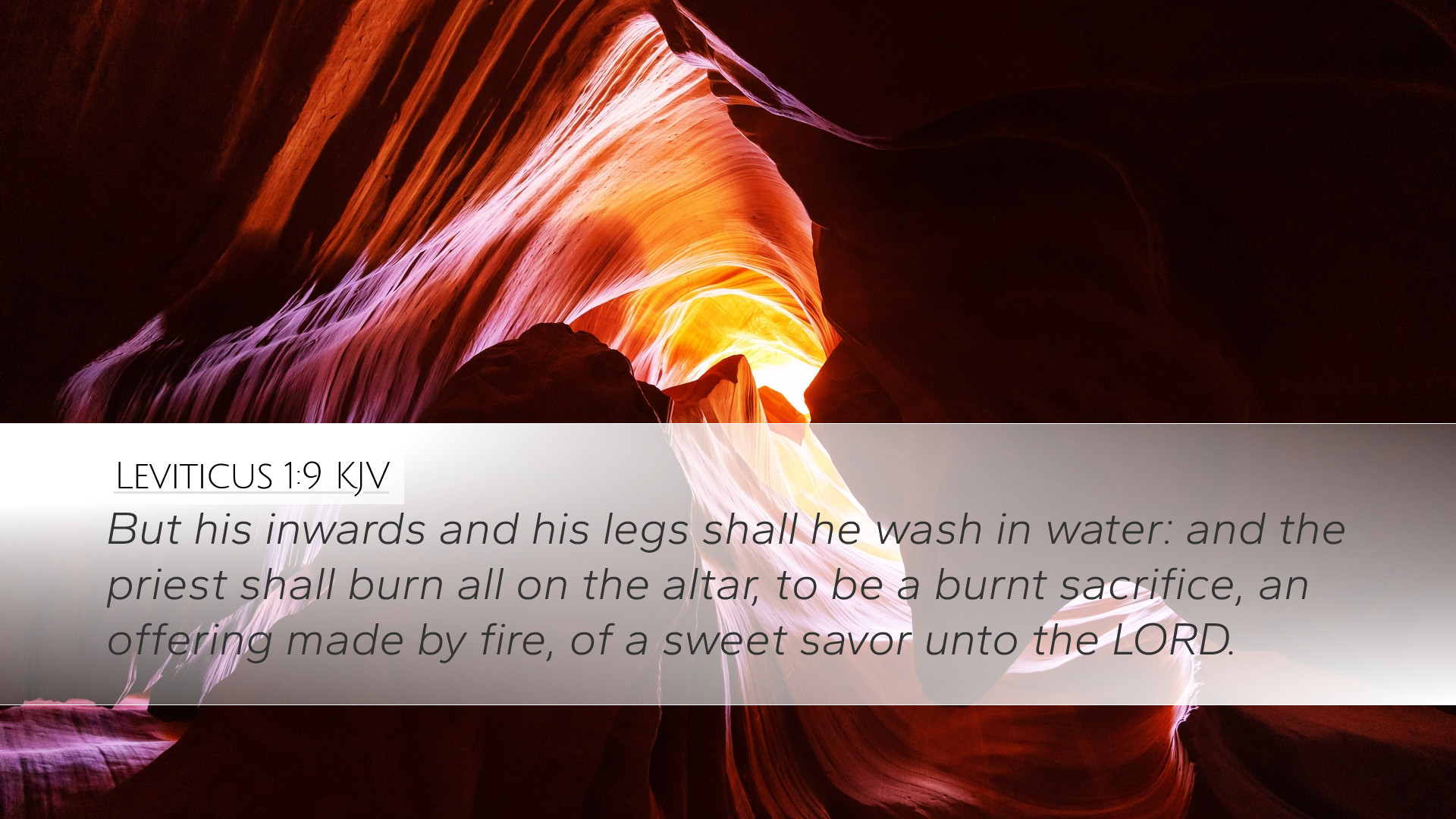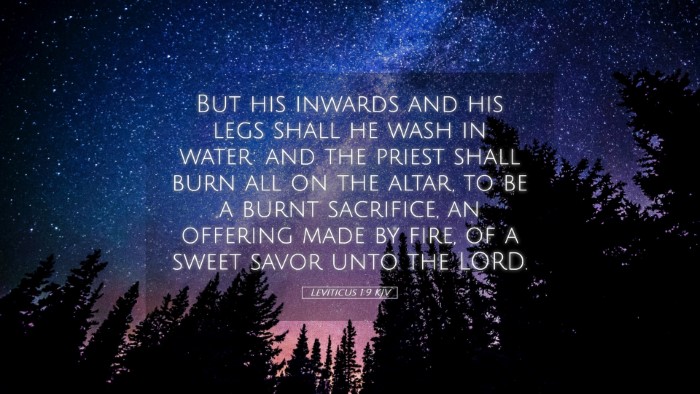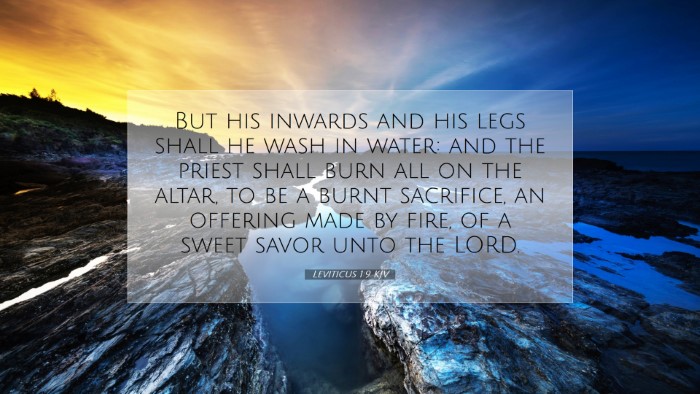Commentary on Leviticus 1:9
Verse Overview: Leviticus 1:9 states, "But his inwards and his legs shall he wash in water: and the priest shall burn all on the altar, to be a burnt sacrifice, an offering made by fire, of a sweet savour unto the LORD."
General Context:
The Book of Leviticus contains the laws and regulations for worship and ritual practice among the Israelites. It serves as a guide for both the priests and the people, stressing the importance of holiness and proper conduct in relation to God.
Commentary Insights:
1. The Nature of the Burnt Offering:
Matthew Henry: The burnt offering was an act of total dedication. Unlike other offerings, which might be shared, the entirety of the burnt offering was consumed by fire on the altar. This signifies the complete surrender and consecration of one’s life to God. Henry emphasizes that the burnt offering represents both atonement for sin and sincere devotion, offering a profound lesson on the necessity of giving ourselves entirely to God.
2. The Role of the Priest:
Albert Barnes: Reflecting on the role of the priest, Barnes notes that the priest acts as the intermediary between the offerer and God. The priest’s responsibilities include preparing and offering the sacrifice correctly, ensuring that the inwards and legs are washed, signifying the removal of impurity. This act highlights the concept that only pure and clean offerings can be acceptable to God. Barnes stresses the priest's role as foundational in maintaining holiness and proper worship within the community.
3. Symbolism of Washing:
Adam Clarke: Clarke elucidates the symbolic significance of washing the inwards and legs in water. Water often represents purification and cleansing in biblical literature. By commanding that these parts be washed, God teaches the Israelites about the importance of purity in worship. Clarke suggests this act reminds believers of the need for personal introspection and repentance before approaching God with offerings, as true worship requires a heart that is washed and prepared to encounter the holy.
4. The Sweet Savour unto the LORD:
Divine Acceptance: The phrase "a sweet savour unto the LORD" indicates God’s pleasure in the offering made. Henry correctly points out that this does not imply that the physical act of burning meat delights God, but rather the obedience and sincere intention behind the act. Such offerings symbolize devotion and worship, which are essential to a thriving relationship with God.
5. Theological Reflections:
General Theological Insight: The intricate details surrounding sacrifices reflect God’s desire for intimacy and holiness. Even though this ceremonial law was specific to the Israelites, it holds profound significance for contemporary believers. The principles of purity, obedience, and the seriousness of approaching God in worship remain as relevant today as they were then.
6. Practical Applications:
- Complete Dedication: Reflect on how one can offer themselves fully to God, mirroring the burnt offering of total dedication.
- Intercession of Christ: Recognize how the role of the priest foreshadows the ultimate priesthood of Christ, who stands as the mediator for believers.
- Importance of Purity: Commit to personal holiness and repentance, acknowledging that true worship comes from a purified heart.
- God’s Contentment in Worship: Strive not only for obedience but also for a heart that genuinely seeks to please the Lord through worship and offerings.
Conclusion:
Leviticus 1:9 serves as a reminder of the seriousness with which God regards worship and sacrifices. The detailed instructions reflect God’s desire for purity, dedication, and a meaningful relationship with His people. Pastors, students, and scholars are encouraged to explore these themes deeply, applying the lessons of the burnt offering to their spiritual disciplines and corporate worship.


